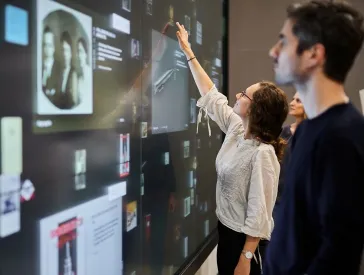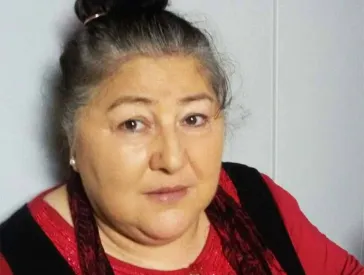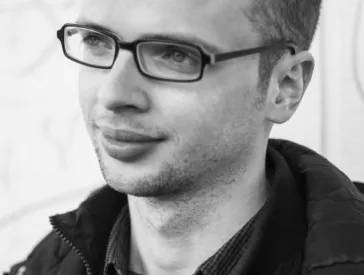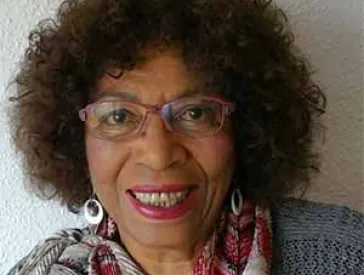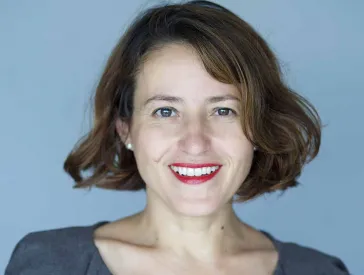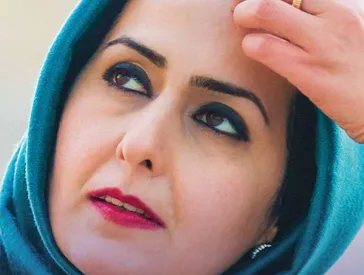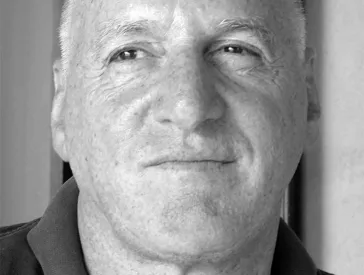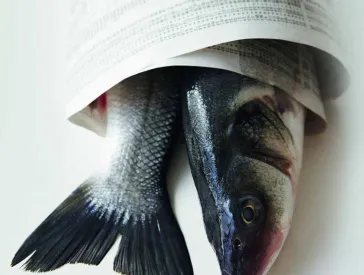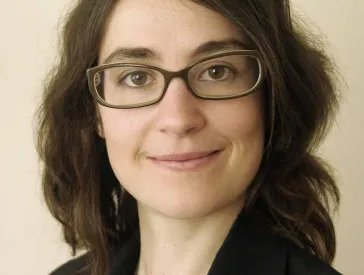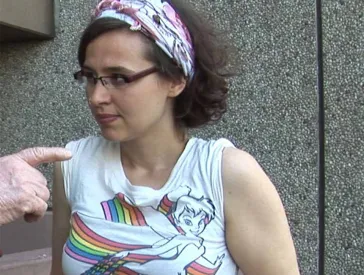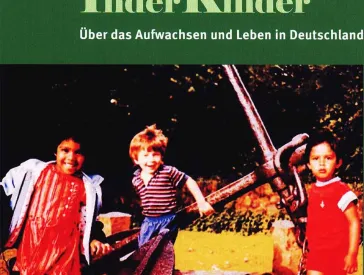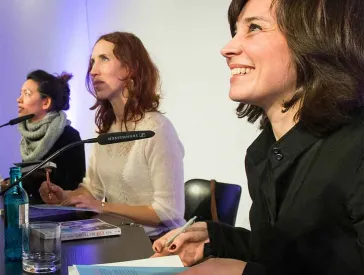Osama bin Laden is Sleeping with Fishes
Three Questions to Ahmad Milad Karimi
Julia Jürgens
In the series New German Stories, which was launched in January 2014 as part of the Academy program, Ahmad Milad Karimi, Professor of Islamic Philosophy and Mysticism at the University of Münster, presented his book Osama bin Laden is Sleeping with Fishes (Osama bin Laden schläft bei den Fischen) at the Academy of the Jewish Museum Berlin on March 10, 2015.
On 9 March 2015 Julia Jürgens did a short interview with Ahmad Milad Karimi and asked him the following three questions:
In your autobiography you bring together Western popular culture and the history of Islamic intellectualism, the translation of the Koran and your PhD thesis on Hegel, Persian mysticism and a penchant for mafia films. If I may make a question of your book’s subtitle: What does Marlon Brando have to do with the pleasure you take in being Muslim?
That is a secret of the book, a secret concealed first and foremost by the fact that there is always more to people than the pigeonhole we like to keep them in.
Six years ago you published your new translation of the Koran. What motivated you to take up such a challenge and add a new translation to those already in existence?
The Koran is more than simply a book—it is the poetry of God. The Koran is rhythmic and melodious. It has a beat and a timbre. Every pause for breath is emotional and pregnant with meaning. The way in which the Koran comes into being by creating a resonant space at each reading touches the heart. The Koran is thus an act of beauty and a means to experience God. And it was this, which shaped my decision to translate the Koran, to translate it in such a way as to foreground this spirit, this experience also in the German version.
You and your family fled the war in Afghanistan in 1992. For over a year you were in the hands of traffickers, on an odyssee that took you to New Delhi and Moscow before you finally reached your destination, Germany. In the light of this experience, how do you view “Fortress Europe’s” current policy on refugees and asylum seekers?
What would Europe be without its refugees? The German philosopher Walter Benjamin, who took his own life when fleeing the Nazis in 1940, noted in his Arcades project that the idea of progress is rooted in the idea of catastrophe: “That ‘it goes on like this’ is the catastrophe.” The real catastrophe is the attitude of the general public to those who are forced to flee, to those who are in search of humanity but only rarely find it. To be able to stay here “on tolerance”, [i.e. be allowed only a provisional residence permit], to have one’s application for asylum “turned down,” to be “deported”— all these are verdicts that concern human beings. But these particular human beings are defined and treated as objects that cost money, that are a burden. By contrast, policy that respects the human rights of refugees and asylum-seekers calls for solidarity and, above all, for a comprehensive package of measures—the first of which must be the right to legal immigration. Europe will fail to meet its own standards of democracy if its asylum policy remains focused not on the needs of people in distress but on the economic interests of each of its member states.
The interview was conducted by Julia Jürgens (Academy program on migration and diversity).
Ahmad Milad Karimi Osama bin Laden schläft bei den Fischen (“Osama bin Laden is sleeping with fishes”, book cover); Herder Publishers
Citation recommendation:
Julia Jürgens (2015), Osama bin Laden is Sleeping with Fishes. Three Questions to Ahmad Milad Karimi.
URL: www.jmberlin.de/en/node/6351
Interview Series: New German Stories (12)

